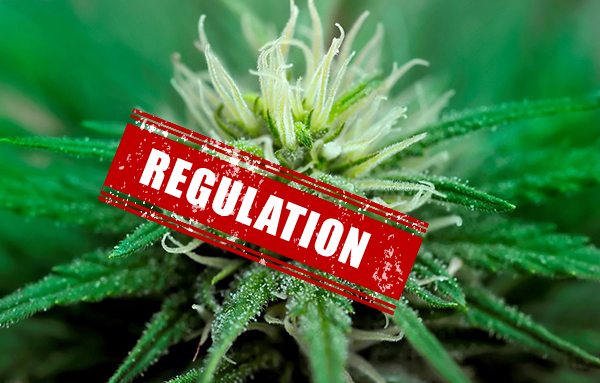The ruling classes, faced with the fact that they are outnumbered by thousands to one, have refined an array of techniques to divide the people into groups and set them at each other’s throats. This array covers all of the different aspects of human life, so that individuals are made enemies of each other at every turn. This essay describes how the people are divided and conquered across the entire spectrum of life.
Human life covers the complete spectrum from purely physical concerns to purely spiritual concerns. Physical concerns such as blood and soil are different to matters of class and education, and these are in their turn different to religious and spiritual matters. By means of propaganda, people are divided at each part of the spectrum, and made to believe that someone else has stolen from them.
This stealing is how the other side of the spectrum (any spectrum) is characterised as the bad guys, the stealers, the takers. The mouthpieces of the ruling class will tell their listeners that all of the suffering those listeners feel is because those at the other end of the spectrum have stolen from them. The natural result is that the listeners come to hate those others, and in doing so become divided and conquered.
At the physical end, people belonging to any racial group have been led, by way of propaganda, to feel that other races have collectively worked to steal from them. In America, blacks are made to feel that whites have stolen from them through slavery, and owe them compensation; whites are made to feel that blacks have stolen from them through taxation to fund welfare.
The story is the same all over the West. There was a time when New Zealanders considered themselves Kiwis first and their particular ethnic makeup was a secondary thing. But after decades of rhetoric, many Maoris have come to be convinced that colonisation was an act of evil for which they are owed compensation. White people were convinced, at the same time, that Maoris had stolen from them through taxation-funded welfare and crime, and the end result was to split the Kiwi people down the centre.
Less physical issues do not make people less vulnerable to being divided and conquered. Even if everyone was the same race, it is still possible to divide people along class or religious differences.
The most obvious example is of Communist agitation in a factory. The Communist begins by persuading the workers that they are being stolen from because their wages are not equal to the value of their production. If the worker is not intelligent enough to understand the basics of how a business is run, and does not understand that operating a business requires competencies that he does not necessarily have, he may be persuaded that his boss is stealing from him, and that restitution is owed.
Communist agitation in Rhodesia is an example that combines both race and class. Local blacks were convinced that white settlers had stolen land from them and were trying to enslave them. The blacks were told that everything the whites had was stolen from them, and this theft was why they didn’t have it. This led to rising resentment which eventually tore the entire country in two, a blueprint since repeated all across the world.
Education is another spectrum upon which people are divided. The poorly educated are led to believe that the well educated have arrived at their greater position of wealth through sneakery and trickery, not through study and applied competence. As with the other examples, the poorly educated are then made to become resentful, and so come to fight the well educated instead of co-operating with them as yin and yang.
All of this dividing and conquering works because of the state of spiritual ignorance that we have fallen into. People have forgotten that life is suffering, and that suffering is inherent to existence as a mortal being in this world. Because they have forgotten this, it is possible to convince them that their suffering is unnatural, and that someone else must be to blame. This is an example of chains of gold.
All that’s necessary to start it is to find a spectrum of wealth somewhere within society. It can be a spectrum of wealth along race lines, along class lines, along education lines – it doesn’t matter. As long as the people at both ends are told that the people at the other end have stolen from them or are looking to, both groups will dig themselves in and start hating the other.
From there, it’s a simple matter to point the finger at the other side of the national, racial, education or religious divide and say that all the suffering is because those people have stolen from us, and so individuals from that group are personally responsible for restitution. Once this has been achieved, it’s all but guaranteed that those so blamed will point the finger back, and at this point arguing and fighting begins.
Our ruling Establishment encourages divide and conquer logic, because the more effectively the people can be divided, the less able they are to mount a co-ordinated challenge against the will of that Establishment. This is why the media is daily full of propaganda about “injustice”. They don’t care about preventing injustice – they just want to fan the flames of it so that people are angry and blame each other, instead of the rulers.
Certain incompetent individuals also encourage divide and conquer logic, because they know that if the people were united and competent people promoted, those individuals would be left behind. Incompetent individuals, therefore, have an interest in dividing and conquering so that they can slice off their own little piece of turf and rule the smaller group present in it. They want to keep the group small so as to discourage more competent competition for places in the ruling hierarchy of that group.
In summary, people are divided and conquered because their own spiritual ignorance makes it possible for unscrupulous propagandists to blame the natural suffering of life on acts of theft committed by “others”. Blaming all the suffering inherent to life on others ensures that revenge will be sought, that grievances and vendettas will grow, that the cracks diving society will deepen and therefore that the suffering will never be overcome.
Anyone who denies that life is naturally suffering, and who insists that any suffering that exists is the fault of a particular group of people, is working to divide and conquer society. These people must be considered suspect, and their motives potentially malicious. This is true no matter how powerful, rich, numerous or oppressive the so-called bad guys might be.
*
If you enjoyed reading this essay, you can get a compilation of the Best VJMP Essays and Articles of 2018 from Amazon for Kindle or Amazon for CreateSpace (for international readers), or TradeMe (for Kiwis). A compilation of the Best VJMP Essays and Articles of 2017 is also available.




